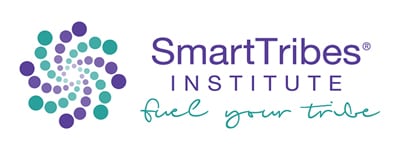
As an executive coach, I invest a great deal of time in helping people get unstuck. And I repeatedly see 3 key areas where they are ensnared. We all want to be happy, to get along, to have great lives. The tricky part is we don’t live in a vacuum, so for better or worse, we must interact with others. This can be the best part of life, as well as the most challenging. Here are my top 3 neuroscience-based strategies to help you get unstuck fast:
1. Catch Trouble Before You’re Entangled
You’re bopping along, having a great day, then you get blindsided by someone’s unpleasant behavior. Why? It’s their thing—not yours. Why take on their negativity, get fearful/avoid conflict/get angry/judgmental? It’s all about energy. Emotions have energy, and you have a choice as to whether you absorb that energy or not.
Here’s how we absorb it and let it burn our high:
- Fear: you fear the person or fear they have power over you, your finances, your future, your happiness, or so on. You get the idea.
- Judgment: you judge the person or situation
- Attachment: you think something needs to be a certain way or must occur on a certain timeline, and you’re attached to getting what you want.
All 3 reactions cause you to become emotionally entangled, and then you’re in trouble. Let’s be conscious of this as leaders, as solving problems is often a part of our job. The next time a buzz kill comes your way—stop, pause, and notice your response. Are you reacting with fear? Judging the person? Feeling attached to a certain outcome/how things should be? Stop. Feel it. Then choose differently. Choose to let them have their experience, but do not make it yours!
2. Realize Your Ego-Mind Wants To Make You Unhappy
Have you ever noticed that your mind is always talking? Blah blah blah – all the time. We know from both Wayne Dyer’s research and the NSA that a human has about 60,000 thought per day. 90% of them are repetitive. Whoa. That’s nuts!
What would happen if you didn’t think so much? Have you ever had the experience of stopping the relentless dialog in your mind? Try it.
Focus on your breath: inhale for a count of 7 through your nose, hold for a count of 7, exhale for a count of 7 through your mouth. Do this at least 7 times in a row and you’ll start to get still. The mind needs a project. It’s ok to give it the task of counting to get still as you do a parasympathetic nervous system reset.
Next, when you return to thinking, step back and witness what your mind says. Does it complain? Pout? Rage? Thoughts generate energy. You can always stop, or at least slow, down your thoughts.
Be careful what energy you fill your life with.
Mike Dooley of Tut says “A young soul learns to take responsibility for their actions, a mature soul learns to take responsibility for their thoughts, and a wise soul learns to take responsibility for their happiness.” Why not be a wise soul?
3. Consciously Develop Your Emotional Intelligence
To be a conscious leader, we eventually will embrace neuroscience-based strategies for emotional intelligence. Let’s talk about the two elements of doing so. There is personal competence, which is our self-awareness and ability to regulate our emotions, and social competence, which is our awareness of the emotional experience of others and our ability to navigate the emotions of others.
How aware are you of your emotions? Do you know how you’re feeling at any given time? Our feelings are how we navigate our experiences. Grab our emotion wheel to check in on yourself.
Next, are you able to witness your emotions and not get swept up in them? This is where mindfulness and meditation really help. As we learn to slow our thoughts down, we gain the ability to be less wrapped up in our own emotional dramas.
As we deepen our awareness of ourselves, we can then have more compassion for the emotional experiences of others, which enables us to navigate conflict more easily, give others a break when they’re stuck, and help them get unstuck. We start to notice that we don’t take another person’s emotional outburst personally. We can witness it without being wrapped up in it.
Net-Net
Humans take on the emotions of others when they fear, judge or get attached to what the person is to them, or what that person represents. It’s essential to use neuroscience-based strategies to manage the relentless chatter of our ego mind in order to have both inner peace and behavioral choice
Emotional intelligence is something we learn, and work at, daily.
Where would you like to grow?






